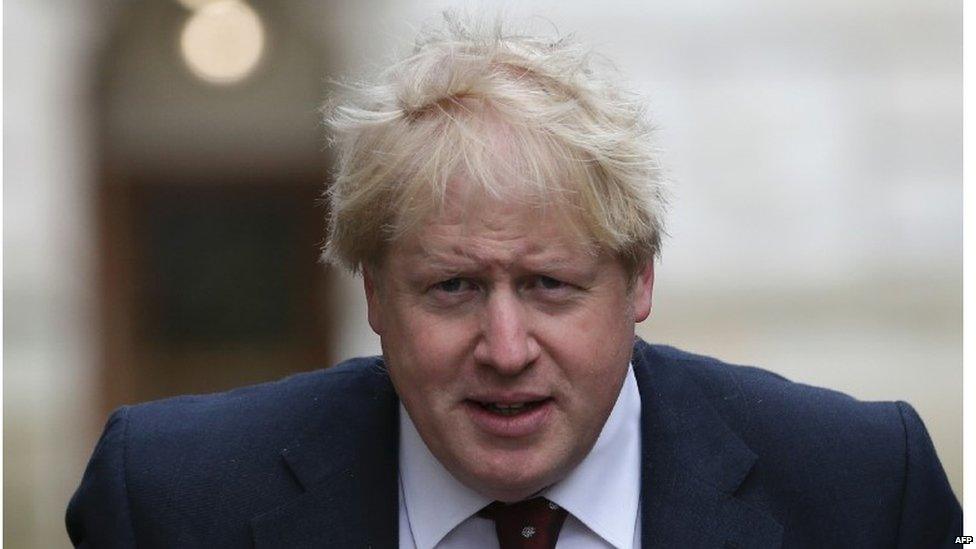Overseas aid: UK plan to 'empower' poor nations
- Published

The move is being driven by the foreign secretary
Plans to spend more overseas aid promoting Britain's strategic national interests have been criticised by MPs.
A new cross-Whitehall fund is being set up to help poor nations counter Russian influence and Islamic extremism.
But some MPs fear that this could mean less money spent on relieving poverty in Africa and Asia.
The government's continuing commitment to spend 0.7%, more than £12bn, of its national income on overseas aid every year is controversial.
To address concerns about value for money in aid spending at a time of austerity, ministers want to spend more of the money not only relieving poverty but also promoting Britain's strategic interests.
As such, they are developing a new so-called "empowerment fund" worth £700m over four years.
Stability
This could be used by the Foreign Office and other departments to help developing countries counter the threat of Islamic extremism or the clout of Russia.
This could mean, say, more training for Ukraine in cyber defence - or more education for Syrian refugees in the Middle East.
Nadhim Zahawi, a Conservative member of the Commons Foreign Affairs Committee, welcomed the idea. "If this sort of fund will help push back and allow communities to be stabilised then I think it's a good thing," he said.
"Stability directly feeds into peoples' livelihoods, education, all the things that development should be quite rightly backing."
Scrutiny
But others MPs fear the new fund could divert money away from helping the poorest countries in Africa and Asia.
"These cross government funds which have a lot less scrutiny, a lot less transparency than the work that's done through the Department for International Development, I think, are an increasing concern," says Stephen Doughty, a Labour member of the Commons International Development Committee.
"And unfortunately it's quite clear the money isn't necessarily being spent as well as it should be, ironically, as we're diverting it away from the department that does spend it well."
The new fund is being driven by Foreign Secretary Boris Johnson.
His civil servants have long envied the bulging coffers of the Department for International Development whose officials have, in turn, long doubted the ability of the Foreign Office to spend aid effectively.
But the government wants UK aid tied more closely to UK national interests so it can take on its critics who think Britain spends too much on aid, full stop.
- Published7 January 2017

- Published24 October 2016